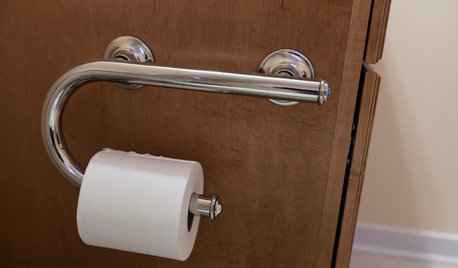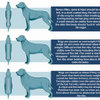Over-medicating kittens
kittens
14 years ago
Related Stories

LIFEYour First-Aid, Emergency and Medical Supply Checklist
Don’t wait until you need them to stock your first-aid kit and emergency stash. Here’s what to get and where to keep it
Full Story
MOST POPULARA Fine Mess: How to Have a Clean-Enough Home Over Summer Break
Don't have an 'I'd rather be cleaning' bumper sticker? To keep your home bearably tidy when the kids are around more, try these strategies
Full Story
DECORATING GUIDESSo Your Style Is: The Doctor Is In
Are medical accessories your go-to Rx for style? Find out how to use them in a healthy balance
Full Story
THE HARDWORKING HOMEA Laundry Makes Room for a Diva Cat
A South Carolina laundry room was designed to be sophisticated and functional, but when a kitten arrived, whimsy emerged
Full Story
FARM YOUR YARDMy Houzz: An Urban Farm and Animal Sanctuary in Austin
Four dogs, four chickens, a duck and a kitten find refuge in a photographer’s updated home
Full Story
LIFEThe Absolute Right Way to Hang Toilet Paper. Maybe
Find out whether over or under is ahead in our poll and see some unusual roll hangers, shelves and nooks
Full Story
BEDROOMSDesigner Tips for Creating a Better Bedroom
In the dark about bedside lamps? Waffling over pillows at the store? Try these ideas for a more comfortable bedroom
Full Story
WORKING WITH PROSGet the Upholstery Work You Expect: 10 Details to Discuss
Avoid disappointment and unexpected costs by going over these key areas with your upholsterer before work begins
Full Story
DECORATING GUIDESHow to Bring Order to Your Delightfully Eclectic Room
You've picked up your furniture and finds over the years — here's how to tie it all together
Full Story
More Discussions










laurief_gw
kittensOriginal Author
Related Professionals
Westbury Interior Designers & Decorators · Cartersville Furniture & Accessories · Chambersburg Furniture & Accessories · Spartanburg Furniture & Accessories · Eureka Furniture & Accessories · Alton Cabinets & Cabinetry · Drexel Hill Cabinets & Cabinetry · Lackawanna Cabinets & Cabinetry · Desert Hot Springs Flooring Contractors · Fort Pierce Flooring Contractors · Monroe Flooring Contractors · Valencia Flooring Contractors · Westlake Flooring Contractors · Yorba Linda Flooring Contractors · Alum Rock Flooring ContractorsMeghane
kittensOriginal Author
Meghane